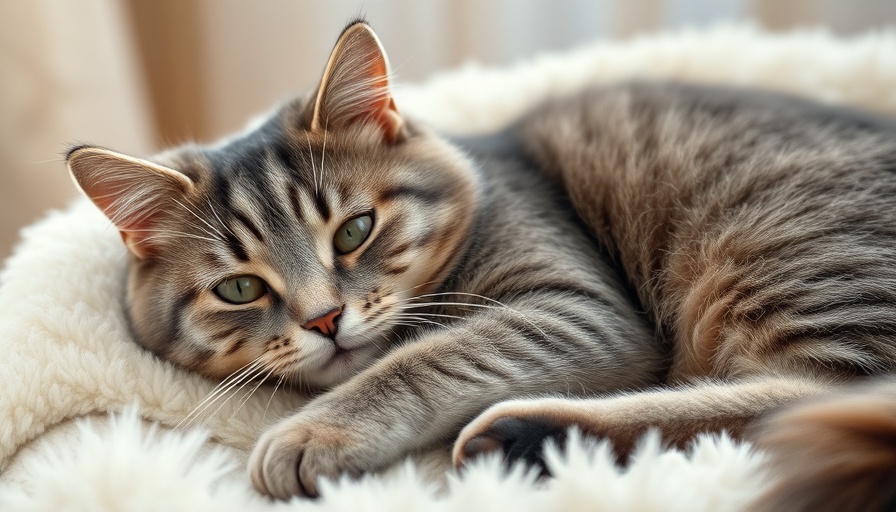
Understanding Avian Influenza Risk for Cats
As pet owners become increasingly aware of the health risks associated with avian influenza, it’s critical to understand how this virus, primarily affecting birds, can impact our feline friends. The transmission of Highly Pathogenic Avian Influenza (HPAI) among wild birds and poultry has drawn concern, especially since recent reports indicate that domestic cats can also become infected.
How Cats Get Infected with Avian Influenza
Cats can contract avian influenza through direct contact with infected birds or their environments. This includes hunting or scavenging for sick birds, drinking from water contaminated with bird droppings, or exposure to raw poultry products. Although indoor cats are typically at a lower risk, outdoor cats are particularly susceptible to this virus. Understanding these transmission routes is vital for protecting our pets.
Recognizing Symptoms of Avian Influenza in Cats
Being able to identify the signs of avian influenza is essential for prompt treatment. Symptoms can vary significantly; watch for lethargy, decreased appetite, fever, and respiratory issues. Severe cases may present neurological signs like tremors or seizures. If your cat exhibits any of these symptoms, particularly after being around birds, a visit to the veterinarian is necessary for immediate care.
Preventive Measures to Protect Your Cat
With no specific treatment for avian influenza in cats, prevention becomes your best strategy. Here are some important steps:
- Avoid Contact with Birds: Do not encourage birds to visit your yard, and promptly dispose of any bird remains or droppings. Ensuring that your outdoor space is free from potential contamination will help safeguard your cat.
- Be Mindful of Poultry Products: If you choose to feed raw poultry or eggs, be cautious as these can transmit the virus. Properly cooked poultry remains safe and is a recommended option.
- Limit Exposure: If you raise chickens, change clothes and wash your hands before interacting with your cat. Keep them away from areas where wild birds congregate, and maintain separate food and water sources for pets.
- Stay Updated on Local Outbreaks: Regularly check for local health advisories concerning avian influenza. If outbreaks are reported in your area, increase vigilance regarding your cat’s interactions with outside environments.
When to Seek Veterinary Advice
Timely veterinary intervention is crucial if your cat shows signs of illness after potential exposure to birds. Early detection can significantly improve outcomes and may prevent wider transmission. Contact your veterinarian if you notice concerning symptoms or if your pet may have been in contact with infected wildlife.
The Community Role in Pet Health
As responsible pet owners, we play a significant role in protecting our cats from avian influenza and other health risks. Building a supportive community where information is shared and discussed fosters awareness and proactive measures. Whether you’re part of a local pet group or simply speaking with your vet, participating in conversations about pet health can lead to healthier and happier lives for our cats.
Conclusion: Your Pet's Safety Matters
Although avian influenza is a serious concern, by implementing straightforward strategies, we can keep our cats safe from infection. Preventive care, regular check-ins with your veterinarian, and community engagement all play integral roles in pet health. If you have any questions or need further assistance, don’t hesitate to reach out to your local veterinarians, like those at Nimbus Pet Hospital, for guidance on how to best protect your furry family member.
 Add Row
Add Row  Add
Add 




Write A Comment